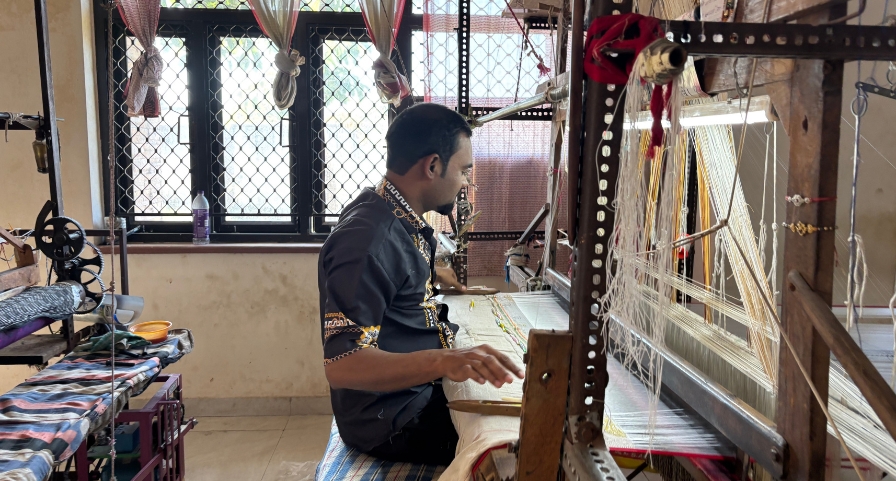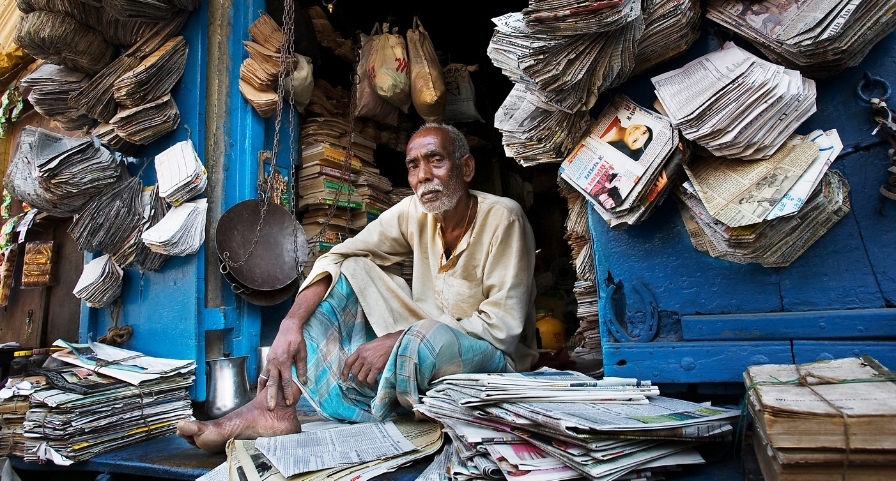Tele-consultation for COVID-19 has become more or less the norm in cities these days. We have the fear of coming in contact with infected people in public transport systems. We believe that having to wait in the lounges of hospitals or private clinics with potentially positive COVID-19 patients is a little risky.
The expenditure and time involved in travel also discourage us from in-person consultation if it can be avoided. All these factors have encouraged the urban, computer savvy, anglophone citizens to enthusiastically adopt tele-consultation.
Even before COVID-19 became the raging pandemic that it is, Ministry of Health and Family Welfare launched the e-Sanjeevani platform to facilitate ordinary patients tele-consult doctors. Jharkhand, a state lagging behind in technological aspects, has used the platform to provide medical assistance to rural COVID-19 patients.
Jharkhand Integrated Development for Health and Nutrition (JIDHAN), is a project supported by Azim Premji Philanthropic Initiatives and implemented by Transform Rural India Foundation (TRIF). In JIDHAN project, TRIF is working with its technical partner Intelehealth on activating the service of e-Sanjeevani platform and increasing its reach within the state. It works across 15 administrative blocks in Ranchi, Khunti, Simdega, Gumla and Lohardaga districts of the state.
The JIDHAN project has demonstrated how e-Sanjeevani platform can help in providing succor to home-isolated and other rural COVID-19 patients as well as patients of other ailments not only in these districts but the whole state.
Tele-consultation
The rural health system in Jharkhand comprises the accredited social health activist (ASHA) and the health and wellness centers (HWC – earlier known as health sub-centers) at the village level. Community health officers (CHO) and auxiliary nurses and midwives (ANMs) help run the HWCs.
Primary health centers (PHCs) function at the panchayat level in a cluster of panchayats based on population or at the block level. Community health centers (CHCs) provide healthcare at the administrative block level. District hospital (DH) functions at the district level.
Recognizing the vital role that tele-consultation could play to provide quality healthcare to tribal and rural population, and to make it easier for them to reach doctors, the services were launched.
e-Sanjeevani platform
Registering on the platform, hub of doctors and the timings of consultation services are state-specific and thus the patient can easily connect without any language barrier. General working hours of the service are: for general OPD it is 11 am to 01 pm, and 3 pm to 5 pm on all days excluding Sunday. For specialists it remains 1 pm to 2 pm, and 2 pm to 3 pm for different specializations on different days.
There are two models of e-Sanjeevani platforms developed by Centre for Development of Advanced Computing (C-DAC) and launched by Ministry of Health and Family Welfare. The e-Sanjeevani OPD model provides for direct interaction between doctors and patients.
In the second model the patients go to the HWC and interact with the doctors with the help of community health officers (CHO) and auxiliary nurses and midwives (ANMs) of the health departments. JIDHAN is working on activating the service of e-Sanjeevani platform and increasing its reach within the state.
In the OPD model, a person having access to an Android phone registers and logs herself in the e-Sanjeevani platform, searches for and fixes appointments with a general physician or a specialist and obtains the consultation.
In the HWC model, every trained CHO is allotted a login id and password which allows her to use the e-Sanjeevani platform. In this model, the CHO or the ANM connects with the doctor when the patient comes to the center. The CHO or ANM undertakes such clinical examination as pulse, temperature, palpating, examining tongue, blood pressure, etc. and gives the details to the doctor, thus facilitating the consultation.
Medicine prescription
After the consultation, the doctor sends a prescription for treatment. This prescription can be downloaded and has the legal sanction for obtaining the prescribed medicines at government dispensaries in HWC / PHC/ CHC/ district hospital as well from private medical stores.
Nibhadevi of Bia panchayat in Angara block of Ranchi said, “I am very glad that e-Sanjeevani has come. I could register and log in from my phone. The doctor was very kind and not only understood my problem and symptoms but also explained what I should do. The medicines he recommended were available. I will always use e-Sanjeevani for myself and my family.”
To ensure the availability of medicines prescribed by the doctors, the essential drug list (EDL) has been shared with health facilities as well as with the doctors. The list is also embedded in the e-Sanjeevani application as a dropdown menu, so that the doctors can choose from it. The doctors have been directed to prescribe drugs from the EDL which is generally available at the health facilities.
Training and awareness
Under the JIDHAN project, intensive work to make communities aware of this facility has been done along with training of all the CHOs and ANMs in 178 panchayats across 15 of the blocks. So far about 40% of CHOs / ANMs in these blocks have been trained. Some 60 more have been trained from other districts and the process is under way to train more.
In 178 panchayats in 15 blocks of the JIDHAN project area, panchayat health facilitators (PHFs) have been placed to work with the community closely. They participate in orientation programs so that they can spread awareness in the community.
About 20 medical officers in the government health system (PHC, CHC and DH) have enrolled in the system and regularly communicate their availability and fix their consultation slots for appointments. A similar number of specialists drawn from Rajendra Institute of Medical Science in Ranchi and AIIMS in Deogarh provide specialist consultations.
Lockdown consultations
During the pandemic period this system is proving very useful. In particular, the home-isolated COVID-19 patients are able to obtain competent medical advice and drug prescriptions. Others suffering from other ailments can also avoid having to travel in these difficult times by using the tele-consultation mode.
Since October 2020 when dedicated efforts at activating the e-Sanjeevani platform began, there have been over 6,000 tele-consultation sessions, across the state. Registering over 1,500 tele-consultations, villagers in Ranchi and Khunti districts have used the e-Sanjeevani platform to the maximum benefit.
A majority of the consultations related to COVID-19. As of now, the count of daily ‘tokens’ – issued when people fix appointment for consultation – exceeds 75 and at least 60% of these result in actual consultations.
Technology thus helps the state health system even in this relatively under-developed and poorly connected state provide healthcare services easily, especially during the pandemic when mobility is restricted.
Praveer Mahato is TRIF’s program officer for JIDHAN project in Jharkhand. Views are personal. Email: praveer@trif.in



